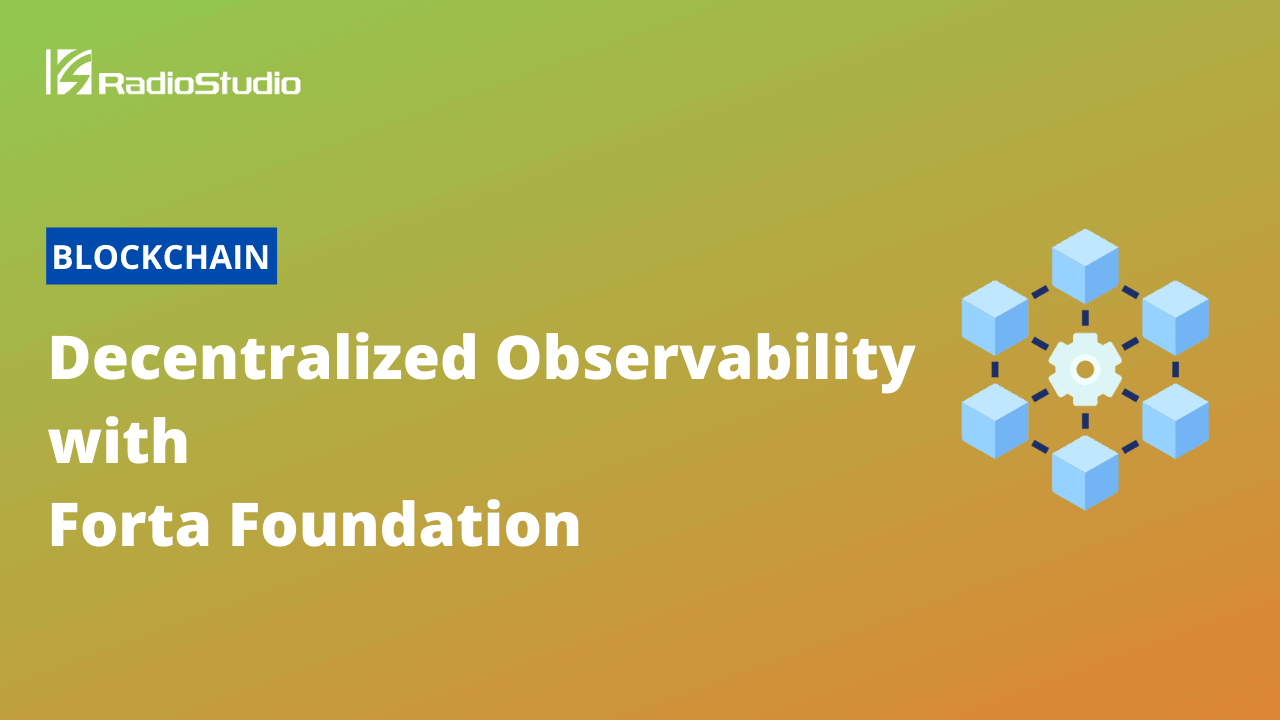This post is about real-time observability in a decentralized network. With hundreds of new decentralized networks springing up, and thousands of dApps getting launched, the pace of innovation is making it difficult to ensure security against vulnerabilities and fraud. Forta is taking a step towards this direction by introducing a fully decentralized network and a suite of SDKs that can detect on-chain event for malicious activities and more.
The post was originally published in Forta Network.
Why Decentralized Observability
For a Web3 real-time security and operational monitoring solution like Forta to provide maximum value, it needs to be decentralized. No single company with a centralized solution can address the constantly evolving risk landscape on blockchains. It would be an extremely difficult task for a centralized enterprise to keep up with the pace of innovation, as every new smart contract deployed introduces new risk vectors that could affect thousands of interconnected protocols and millions of users. Also, centralized solutions create risks of censorship and fraud, which would present major risks in any real-time monitoring solution built for the open economy.
That is why Forta’s technical architecture is decentralized by design. Anyone can write a threat-detection bot and deploy it to the growing network of node operators around the world that are running Forta software to scan every block on major chains. However, technical decentralization of a network like Forta is only valuable to the extent that its governance is also decentralized.
Community Driven Decentralized Observability Platform
Forta has been a community-driven network from the beginning. As a necessary step to full decentralization, governance over Forta has now been endowed to the Forta Foundation, an independent, non-profit organization (the “Foundation”). The Foundation will facilitate Network governance by the Network’s community members. It will initially accomplish this via a council of early Forta participants and ecosystem experts (the “Council”). The Council’s mission will be to steward the continued development and decentralization of the Forta Network by facilitating the collective action of the community. For example, the Council may:
- Support initiatives that contribute to the growth and sustainability of Forta
- Facilitate the development of upgrades and new features of the Network, or adjacent products and services
- Enable Forta security programs and procedures so the community can react to vulnerabilities and ensure the long-term security of the Network
- Educate the Web3 ecosystem about the importance of decentralized runtime security and advocate for the vision of Forta and the decentralized web
- Attract and retain node runners, bot developers, core developers and other community members through marketing and community-building initiatives
The Road Ahead
It is important to reiterate that the Forta Network is designed to be permissionless and that the Foundation will not own the Forta Network, operate it, or manage it. The Forta Network is the sum of many parts – open-source software built by OpenZeppelin, Nethermind, Arbitrary Execution, Limechain and EY, and many individual contributors; node runners from around the world including Foundry, Sigma Prime, Mixbytes, Node Capital, and Blockchain Capital; and an an active community of over 17,000 members promoting and supporting ecosystem participants. The Foundation simply provides a practical infrastructure that allows the Council to formally make and execute governance decisions on behalf of the community until those decisions can be made directly on-chain in a safe, efficient and effective manner by the community at large.
During Forta’s transition to full community governance, it is crucial to maintain stability for Forta users that are relying on the Network for system-critical monitoring. Forta users need to be certain that there will not be sudden changes to the Network due to the volatility of rapid decentralization of governance. For that reason, Forta plans to decentralize governance over the Network progressively, beginning with a period of Council governance where community members can become educated and grow into their governance responsibilities.
Forta’s mission is to monitor and protect all transactions in the Web3, decentralized economy.
About Forta
Incubated by OpenZeppelin, Forta is a decentralized, community-based monitoring network to detect threats and anomalies on DeFi, NFT, governance, bridges and other Web3 systems in real time.


